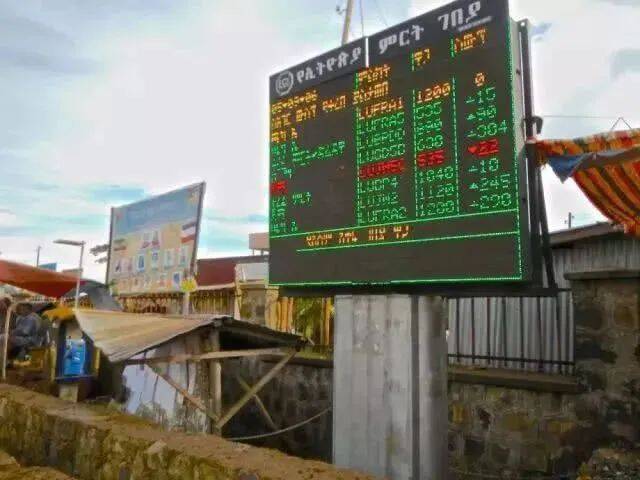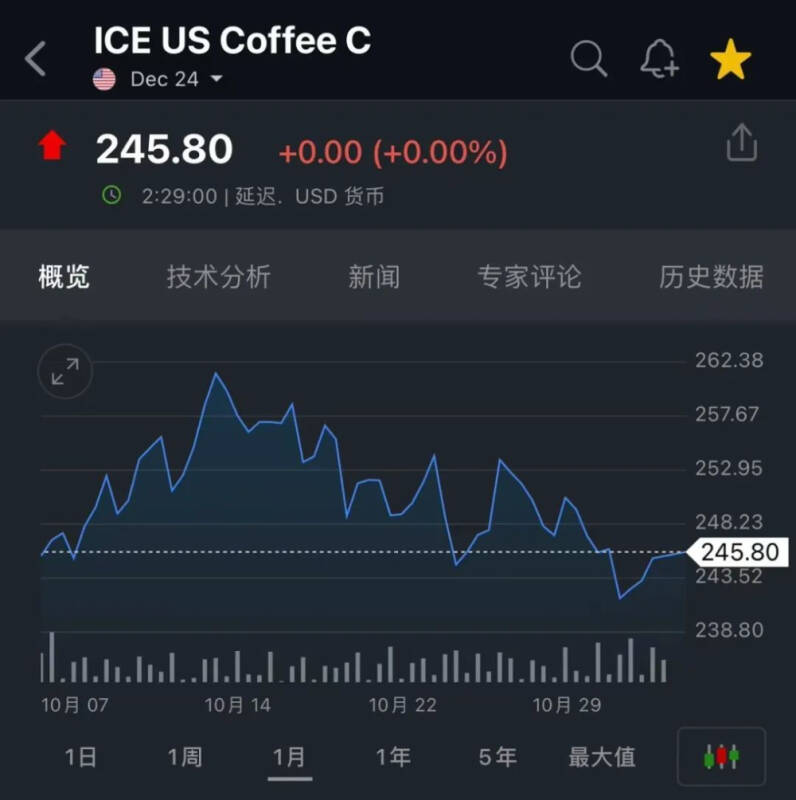Ethiopia introduces new regulations and coffee bean prices may rise!
It is reported that a few days ago, the Ethiopian Commodity Exchange (ECX) is introducing a new pricing mechanism for the export of raw coffee beans, which will be converted every week according to the Arabica coffee futures price of ICE Intercontinental Exchange in New York and the current exchange rate of the Commercial Bank of Ethiopia, so as to help farmers gain higher income.

ECX said that the National Bank of Ethiopia issued a new foreign exchange policy at the end of July, so the liberalization of the foreign exchange market could shift to a new pricing mechanism. The price of coffee and raw beans in Ethiopia will be changed from a fixed price mechanism to a floating price mechanism.
In addition, in the new pricing mechanism, the Ethiopian Coffee and Tea Authority (ECTA) and ECX will continue to impose export minimum prices on the trade of raw coffee beans in accordance with the provisions of 2020, while the price ceiling fluctuates according to international futures prices and exchange rate factors.

However, according to the statement, the new pricing mechanism is mainly used for commercial coffee beans, and the reason for adjusting the coffee export pricing mechanism is that, under the influence of many policies, the export price of coffee is much lower than the first domestic price, so the new mechanism will increase the export price of Ethiopian coffee, but it is not applicable to fine coffee for the time being.
It is understood that according to the Ethiopian decree, there are a total of three coffee export systems, the largest of which are exported through competitive bidding on the ECX platform, cooperative exports, and independent export of a single farm, of which cooperatives and single farms can be exported directly through vertical supply (Vertical Integration) without going through ECX. For a long time, ECX claims to provide market access to 2.4 million small farmers through rural cooperatives.
Earlier in July, Ethiopia announced new foreign exchange reforms. it is essential to address foreign exchange shortages, improve export competitiveness, attract foreign direct investment and complement a number of other macroeconomic reforms to improve the conditions for private sector growth and prosperity in the Ethiopian economy.
This could benefit millions of Ethiopians in multiple foreign exchange-generating sectors, such as farmers involved in the production of exportable crops such as coffee, sesame, legumes and flowers, pastoralists who export cattle and meat, workers such as mining and thousands of enterprises in the service and tourism sectors.
After the release of the new foreign exchange reform, the foreign exchange rate fell sharply, although the devaluation of the Ethiopian currency Bill helps to improve the international competitiveness of commodities such as Ethiopian coffee and is conducive to exports. But at the same time, it has led to a serious rise in local prices in Ethiopia, with some prices rising to 50-100%. For many coffee growers, planting costs have risen as a result.
Therefore, the current new pricing mechanism is good and bad for current coffee cultivation, and the advantage is that when the futures price of Arabica coffee rises, farmers will get a higher profit income because of the floating price. However, when the price is too high, it may reduce the buyer's desire to buy, and may look for other coffee producing areas to replace it.
Moreover, the international coffee futures price is very vulnerable to fluctuations in many aspects. For example, recently, Brazil, the world's major coffee producer, has reported that rainfall has resumed, mitigating the effects of drought, and production is expected to pick up. Coupled with the increase in coffee production in Colombia, the EU EUDR plan to postpone by one year, and other news, coffee futures prices have fallen, while coffee prices in Ethiopia are not conducive to exports because of high prices.
In addition, at present, local coffee exports are more worried about the implementation of EUDR. The European Union is Ethiopia's largest coffee market, accounting for more than 30% of its coffee bean exports, but most of Ethiopia's coffee production is difficult to meet the requirements of EU EUDR, and the government has not taken any practical action.
For more information about coffee producing areas, please scan the code directly and follow: coffee comments.
Long press the QR code to follow:
TRANSLATE with
XEnglishArabicHebrewPolishBulgarianHindiPortugueseCatalanHmong DawRomanianChinese SimplifiedHungarianRussianChinese TraditionalIndonesianSlovakCzechItalianSlovenianDanishJapaneseSpanishDutchKlingonSwedishEnglishKoreanThaiEstonianLatvianTurkishFinnishLithuanianUkrainianFrenchMalayUrduGermanMalteseVietnameseGreekNorwegianWelshHaitian CreolePersian
TRANSLATE with
COPY THE URL BELOW
BackEMBED THE SNIPPET BELOW IN YOUR SITE Bing Webmaster PortalBack
Important Notice :
前街咖啡 FrontStreet Coffee has moved to new addredd:
FrontStreet Coffee Address: 315,Donghua East Road,GuangZhou
Tel:020 38364473
- Prev

What coffee varieties are mainly grown in Costa Rica? Introduction to Obata, H1 and Villa Sanchi varieties
Costa Rican coffee has always been known for its quality coffee. Although the total coffee output is not large, the country attaches great importance to the cultivation of high-quality coffee beans such as Arabica and believes that only by producing high-quality coffee can it gain a foothold in the international market. So in 1989, the Costa Rican government approved
- Next

Origin of the historical story of Yuanyang Coffee: Why can't I sleep after drinking Yuanyang milk tea?
I don't know if you have ever had this experience on the front street: I went to a Hong Kong-style tea restaurant for the first time as a student. I saw the "mandarin duck" that I had never seen before on the menu. I ordered a cup with curiosity. The taste was mellow and silky and rich, but I opened my eyes until dawn that night, and later I dared not order it easily again. It was not until I grew up that I realized that
Related
- What grade does Jamaica Blue Mountain No. 1 coffee belong to and how to drink it better? What is the highest grade of Blue Mountain coffee for coffee aristocrats?
- What are the flavor characteristics of the world-famous coffee Blue Mountain No. 1 Golden Mantelin? What are the characteristics of deep-roasted bitter coffee?
- Can I make coffee a second time in an Italian hand-brewed mocha pot? Why can't coffee be brewed several times like tea leaves?
- Hand-brewed coffee flows with a knife and a tornado. How to brew it? What is the proportion of grinding water and water temperature divided into?
- What is the difference between Indonesian Sumatra Mantinin coffee and gold Mantinin? How to distinguish between real and fake golden Mantelin coffee?
- What does bypass mean in coffee? Why can hand-brewed coffee and water make it better?
- Unexpected! Ruixing Telunsu lattes use a smoothie machine to foam milk?!
- % Arabia's first store in Henan opens into the village?! Netizen: Thought it was P's
- Does an authentic standard mocha coffee recipe use chocolate sauce or powder? Mocha Latte/Dirty Coffee/Salty Mocha Coffee Recipe Share!
- What is the difference between Vietnam egg coffee and Norway egg coffee? Hand-brewed single product coffee filter paper filter cloth filter flat solution!

